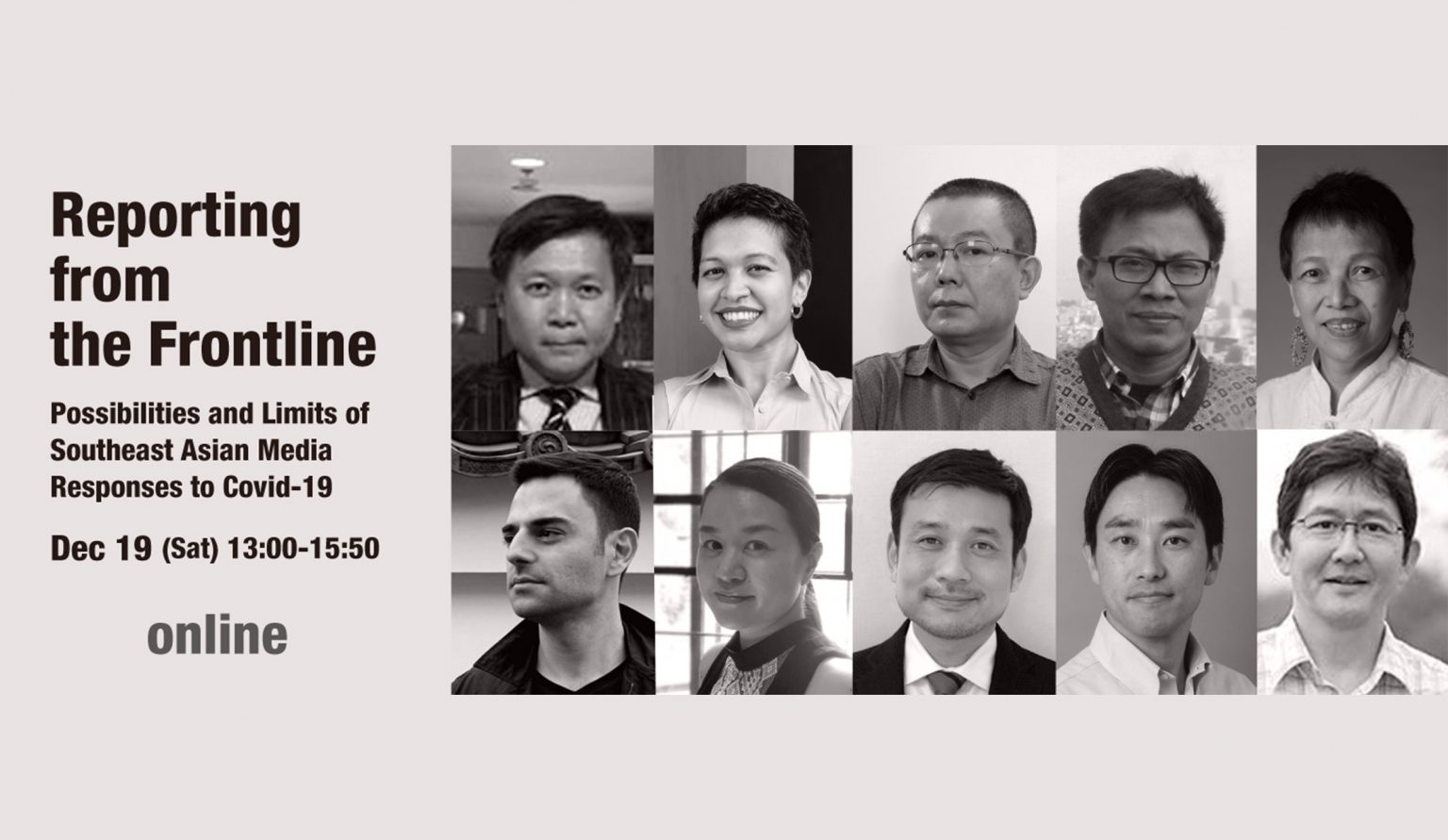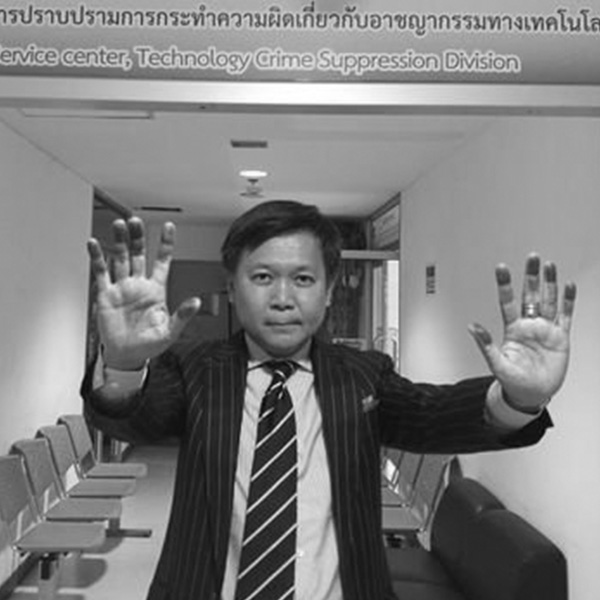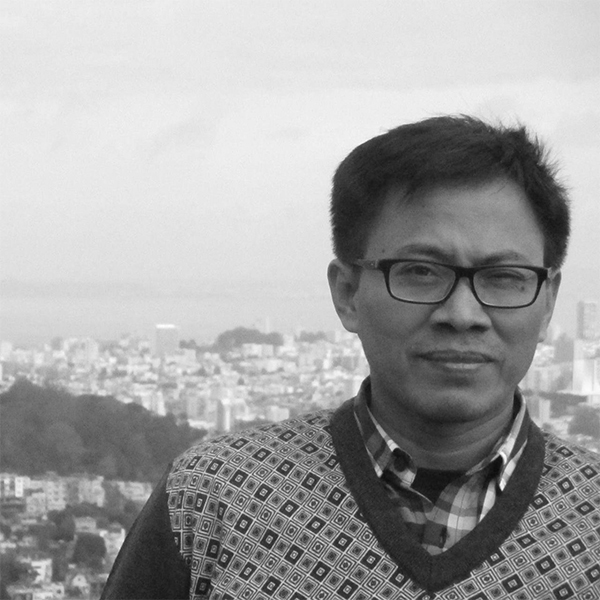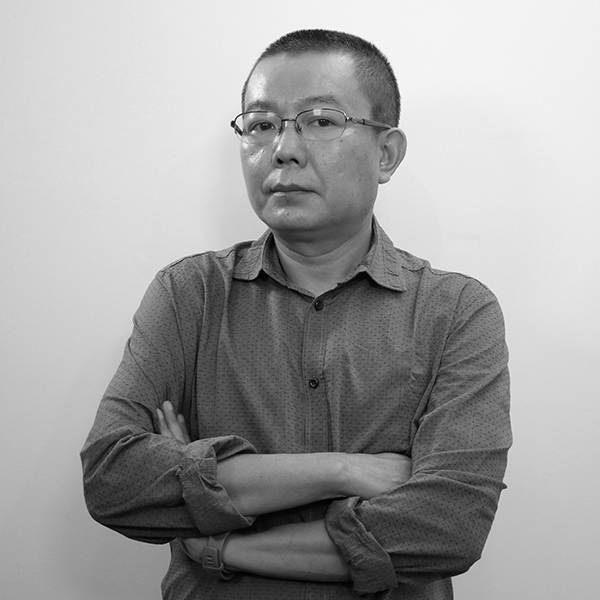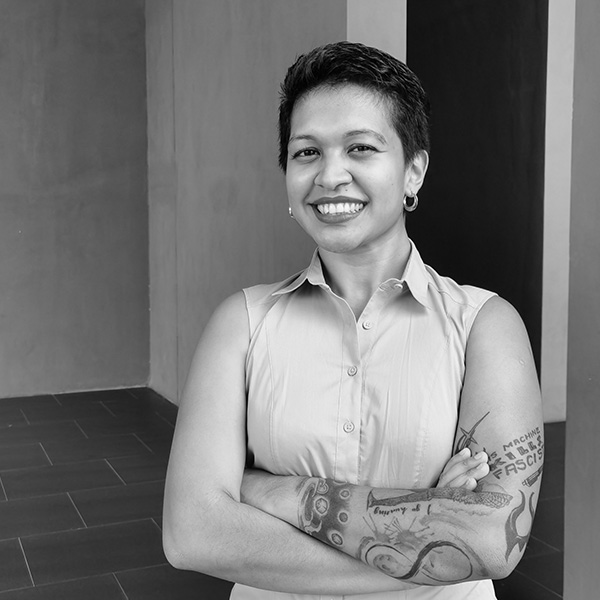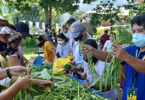Presentation
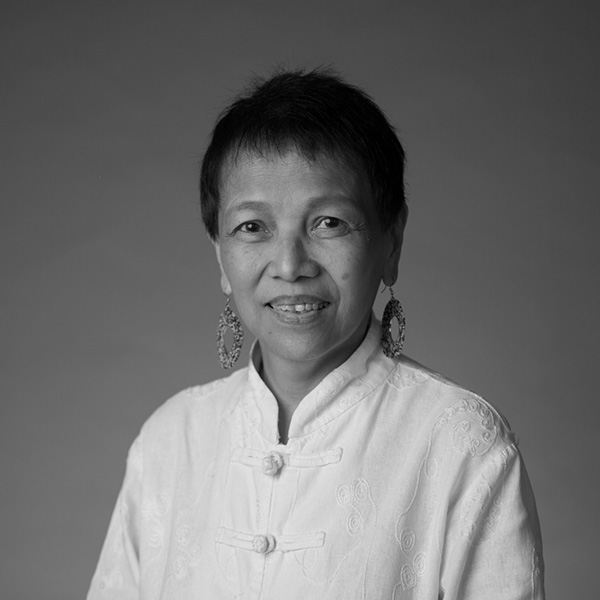 |
SpeakerMarites Vitug(Rappler) |
Abstract
Democracy was already in peril in the Philippines even before the pandemic began in early 2020. But Covid-19 has appeared to accelerate the decline of democracy as the government took draconian steps to contain the virus.
My presentation will tackle two main threads. The first thread will be President Rodrigo Duterte’s response to the pandemic from the lens of law enforcement—including appointing retired generals to run a national task force and ordering one of the longest lockdowns in the world—and what the country has to show for it. In the midst of it all, the government shut down a major television network for political reasons and passed an anti-terror law that threatens basic freedoms.
The second thread will look at journalists’ reporting on Covid-19, the difficulties they faced, including adjusting to virtual coverage, coping with economic pressures, and threats of repression from the state.
The Philippines missed the boat in the battle against the coronavirus. It’s been ten months since the virus hit the country—and more than eight since Filipinos went through the longest and most stringent lockdown in Asia—yet there is little to show for it.
As of 24 November 2019, the Philippines had the second the greatest number of cases in Southeast Asia, next to Indonesia. But it came out on top when it came to number of deaths per one million population at 74, followed by Indonesia at 58 (Worldometer 2020).
Through all these months, the Philippines has not had a moment of reprieve. We have not experienced a steep decline in number of new cases daily; we’re still at four digits, hovering from more than a thousand to over 2,000. When the reported cases dip, it is because data is not complete as operations in some testing laboratories have been hampered by typhoons and technical reasons.
We look at our neighbors, Thailand and Vietnam, and are amazed at how community transmission has gone down dramatically, with new cases dropping to single digits—and zero. Unfortunately, the government of President Rodrigo Duterte has not learned lessons from the successes of these ASEAN countries. As it is, the Philippines is on a plateau and is expected to coast along until vital populations are inoculated—and that is some time off.
Our country’s failed coronavirus strategy begins with the absence of an early and prompt response. In mid-February, about two weeks after the first COVID-19 death outside China happened in the Philippines, Duterte urged Filipinos to travel with him around the country, assuring the public that it was safe. He made this pitch to boost domestic tourism, oblivious to the risks the deadly virus has brought to our shores and to the global public-health crisis (Vitug 2020a).
Not only that. He told the media: “There’s nothing really to be extra scared of that coronavirus thing…I assure you [that] even without the vaccines, it will die a natural death” (Rappler 2020).
In early March, days after the first case of local transmission was reported, Duterte spoke to a large gathering of mayors—hundreds, if not a thousand, of them—packed in an air-conditioned hall, seated beside each other. The President downplayed the virus, saying that “If it’s not your time to go, five million handshakes won’t give you the coronavirus” (Vitug 2020a).
Control is king
As infections spread fast, Duterte appeared to have been jolted when, in mid-March, he imposed a strict lockdown that was to last more than three months. This was the period when control took precedence over public-health measures. The President ordered policemen to shoot lockdown violators, resulting in at least one death (Reuters 2020).
Duterte’s penchant for control showed in his reliance on retired generals to lead the anti-COVID-19 response, rather than epidemiologists, health experts and data scientists. The government had only one testing laboratory and it tried to catch up, working with the private sector to increase the number, along with isolation centers. This was a slow process but eventually showed results. As of November, the country’s laboratories have climbed to 177 (Dept of Health 2020).
However, there was one key area where it performed the weakest: contact tracing. Until today, there’s been little progress as government has yet to hire and train thousands of contact tracers (ABS-CBN 2020). The Department of Health (DoH), which has been consistently criticized for its poor leadership, was unable to tap the thousands of village health workers nationwide, a missed opportunity.
Duterte was seemingly unperturbed by the near-absence of contact tracing. Instead, he took advantage of the pandemic, when mobility was limited thereby stymieing protests, and crushed free expression (Vitug 2020b). Law enforcement authorities clamped down on social media, sending chills to netizens who posted criticisms of the President and government’s handling of the virus. An artist who posted a sarcastic remark on Cebu, the second largest city in the country, as the “epicenter in the whole solar system” was arrested (Macasero 2020).
The Philippine government also harassed a Filipino working in Taiwan for her Facebook posts critical of Duterte asking the Taiwanese government to deport her (Gotinga 2020). This was rejected because, Taiwan said, they respect the freedom of speech. In fact, in the Philippines, thousands of quarantine violators were arrested, more than the number of people who were tested.
As the pandemic raged, the government turned its sights on ABS-CBN, the country’s largest TV network, and shut it down, refusing to renew its license for political reasons. Duterte has always loathed ABS-CBN which he and his allies perceived to be critical of his administration. Many journalists regard this as a press freedom issue (ABS-CBN News has shifted to digital platforms but it had to close down many of its bureaus in the provinces, leading to a vacuum in news coverage of local communities).
Then on February 26, congress passed an anti-terror law, Senate Bill No. 1083, that sent alarm signals as it allowed the arrest of citizens who expressed dissent and gave powers to a civilian body, not the courts, to determine who were “terrorists.” Various groups have challenged this in the Supreme Court (Buan 2020).
Limits to online reporting
Apart from this stifling atmosphere, journalists face other limitations in their coverage of the public-health crisis. Primarily, this has to do with the dominance of virtual press briefings. I’ve asked a couple of young journalists covering health matters how they manage to report during these difficult times. A common complaint is: It is tough to get complete answers to their questions which they send in advance to DoH and other agencies. The officials or spokespersons choose the questions given the limited time and if these are answered, there is no opportunity for a follow-up. “It’s easier for officials to ignore you, for you to get cut off if there’s not enough time,” Sofia Tomacruz, a reporter for Rappler, told me in an e-mail. “It can be difficult to make sure your questions get asked.”
Jovic Yee, a reporter for the Philippine Daily Inquirer, said in an e-mail that DoH recently disallowed reporters from unmuting themselves during Zoom briefings: “This is unfortunate because there are times when we need to raise follow-up questions.”
Despite these limitations, many journalists are able to report well, using data from government and research groups. Academics have been helpful in analyzing data, working with journalists to popularize scientific issues.
Sharing experiences
I would like to zoom out and look at ways Southeast Asian journalists can contribute to a more illuminating and effective coverage of the pandemic. One phenomenon that crosses borders is disinformation which has escalated during the pandemic. As journalists, it falls upon us, together with civil-society groups and academics, to fight disinformation, especially those that are widely shared on social media, those that come from the lips of leaders, not just from our own countries but from other countries as well.
As Southeast Asia is going through this unprecedented crisis, it would be helpful for media organizations to share and compare experiences so that we can learn lessons from each other. This is happening now, at least in a few webinars.
It would be also be useful to learn more about the success stories of Vietnam and Thailand in managing the pandemic. These two countries have been cited as exemplary in containing the virus. It would also be interesting to know how our other neighbors have been coping.
Finally, we journalists in the region need to go beyond our insular thinking and do cross-border and regional reporting. This would be a deeper way to get to know our neighbors. Some publications in ASEAN have already been doing this like Malaysiakini and Tempo.
In times of adversity, an opportunity arises, and this is one of them, for colleagues in Southeast Asia to work together. A key issue that lends itself to regional reporting is the COVID-19 vaccine, including steps being taken by ASEAN to help the region gain access to these vials of hope and how multilateralism is helping resolve the problems brought by the pandemic.
For us in the Philippines, we are still in our infancy stage when it comes to cross-border reporting with ASEAN countries. With the help of the Japan-based Sasakawa Foundation, which is actively promoting cross-border reporting in ASEAN, we hope we will be more active in this kind of journalism and contribute to a meaningful dialogue in our diverse part of the world.
References
- ABS-CBN. 20 Nov, 2020. Magalong admits PH COVID-19 contact tracing weakness. https://news.abs-cbn.com/video/news/11/20/20/magalong-admits-ph-covid-19-contact-tracing-weakness (Accessed 3 December, 2020).
- Buan, Lian. 30 May, 2020. Fears of losing freedoms escalate as congress rushes to pass anti-terror bill. Rappler. https://www.rappler.com/nation/statements-against-anti-terror-bill-sb-1083 (Accessed 3 December, 2020).
- Dept of Health (DoH). 2020. List of Licensed COVID-19 Laboratory in the Philippines. https://hfsrb.doh.gov.ph/?page_id=1729 (Accessed 3 December, 2020).
- Gotinga, JC. 2020. DOLE asks Taiwan to deport OFW with Facebook posts criticzing Duterte. Rappler. https://www.rappler.com/nation/dole-asks-taiwan-deport-ofw-facebook-posts-criticize-duterte (Accessed 3 December, 2020).
- Macasero, Ryan. 22 May, 2020. Taken after midnight, cuffed to a chair: The arrest of Cebuana artist Bambi Beltran. Rappler. https://www.rappler.com/newsbreak/in-depth/taken-midnight-cuffed-chair-cebuana-artist-bambi-beltran
(Accessed 3 December, 2020). - Rappler. 8 April, 2020. False: Duterte warned about the Coronavirus threat ‘at the start.’ https://www.rappler.com/newsbreak/fact-check/duterte-warned-coronavirus-threat-at-the-start (Accessed 3 December, 2020).
- Reuters. 2 April, 2020. ‘Shoot them dead’ – Philippine leader says won’t tolerate lockdown violators. https://www.reuters.com/article/us-health-coronavirus-philippines-dutert-idUSKBN21K0AY (Accessed 3 December, 2020).
- Sasakawa Foundation. https://www.spf.org/en/ (Accessed 3 December, 2020).
- Vitug, Marites. 29 June, 2020a. Duterte fails in Coronavirus crisis leadership. Rappler. https://www.rappler.com/voices/thought-leaders/analysis-duterte-fails-coronavirus-crisis-leadership (Accessed 3 December, 2020).
- Vitug, Marites. 3 May, 2020b. Duterte crushes free expression amid pandemic. Rappler. https://www.rappler.com/voices/thought-leaders/duterte-crushes-free-expression-coronavirus-pandemic (Accessed 3 December, 2020).
- Worldometer. 2020. https://www.worldometers.info/coronavirus/?utm_campaign=homeAdUOA?Si#countries(Accessed 3 December, 2020).
- MARITES DANGUILAN VITUG has been a journalist for almost four decades and is one of the Philippines’ most accomplished journalists. A bestselling author, Marites has written eight books on Philippine current affairs. She is the former editor of Newsbreak, a pioneering political magazine. Currently, she is editor at large of www.rappler.com.
- Her latest book, Rock Solid: How the Philippines won its maritime dispute against China, won the National Book Award for best book in journalism in 2019. She wrote books on the Supreme Court and the Muslim rebellion in Mindanao, among others.
- Marites’s works have been published in foreign periodicals including the Nikkei Asia Review, Nieman Reports, Newsweek, International Herald Tribune, and books and journals, including The Politics of Environment in Southeast Asia (Routledge: London and New York), The Journal of Environment and Development (University of California in San Diego) and “Open Justice Philippine Case Study: Transparency and Civic Participation in the Selection of Supreme Court Justices,” in Open Justice: An Innovation-Driven Agenda for Inclusive Societies, Ministry of Justice and Human Rights of Argentina, 2019.
- In August 2018, Marites was a visiting fellow at the Australia National University, a visiting research scholar at the National Graduate Institute for Policy Studies in Tokyo in 2016 and, in Kyoto University in 2014.
Comment
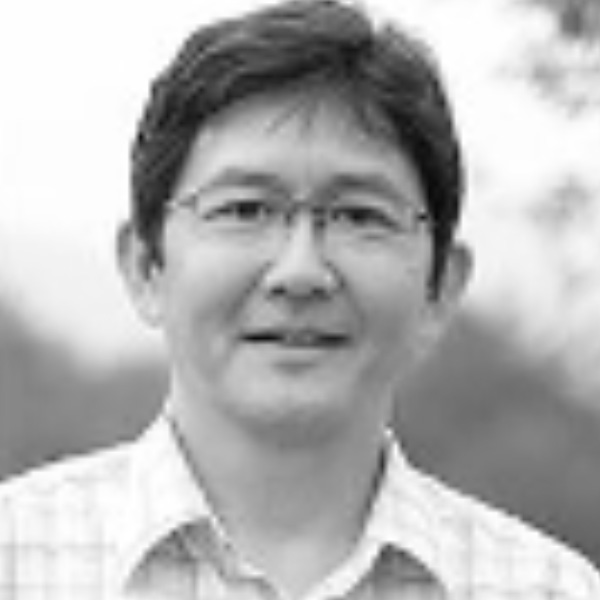 |
DiscussantKoki Seki(Hiroshima University) |
Marites Vitug’s informative talk clearly suggests that the current “war on corona” should be considered as a continuation, or extension, of the “war on drugs” of President Duterte’s administration. The government’s reliance on retired military generals rather than epidemiologists to control the spread of the virus reflects this extension, and does not bode well for the future. Even after imposing the longest and strictest community quarantine in the region, the Philippines does not seem to have produced positive results compared to neighboring Southeast Asian countries. This prompts us to think seriously about what is wrong with the current regime’s approach to the pandemic and what are the alternatives. Here, rather than posing specific questions in response to Marites’ talk, I would like to place it within broader sociological and anthropological discussions around Philippine society under the Duterte administration.
Nicole Curato has characterized President Duterte’s government as employing “penal populism,” or a governing style that builds on collective sentiments of fear and demands punitive politics, which results in the construction of both a distinction and an antagonism between “citizens” and “hardened criminals” or “the scum of society” (Curato 2016: 93-94). Strict community quarantine in the Philippines allows for a similar creation of a moral divide between “self-restraining citizens” and “irresponsible others” who are to be blamed for spreading the virus. Within the context of such penal populism, the important question is: how does the governing style during the “war on drugs” color the “war on corona”? Inversely, is there any possibility that the war on corona might influence, change, or even reconstitute how the “war on drugs” is carried out in the foreseeable future, and if so, how? These questions become significant to pose particularly when we consider the current pandemic not simply as a medical and epidemiological issue, but rather as a phenomenon that creates fundamental uncertainty and precarity in the Philippine society and societies across the globe.
As an anthropologist, I am interested in how interpersonal relationships in communities, or sociality, have been affected by the pandemic. Anna Warburg and Steffen Jensen (2020a; 2020b) argue that as a result of the ongoing war on drugs, “ambiguous fear”—fear and anxiety caused by a constant uncertainty and unpredictability as to who could be the next target of a police operation—has become prevalent among the urban poor communities of Metro Manila. Such police operations heavily rely on a “watch list” of names of alleged drug personalities who are reported to the local government by residents. If someone is perceived by the neighbors as a friend of a drug user, he or she might be in danger of being listed as a target of policing. Given this situation, even though you are sure of your innocence, you are not sure that you will be left unharmed by police violence. This ambiguous fear reconfigures social and moral orders through the creation of deep mistrust among people, in contrast to previously being tied together by the norm of pakikisama, or the ability of getting along among neighbors (Warburg and Jensen 2020a: 16). Ambiguous fear may be a useful lens to analyze the impact of the pandemic on society, since the pandemic also creates a situation of uncertainty in which no one knows who will be targeted and blamed as an “irresponsible spreader of the virus.”
A similar kind of ambiguity, though felt to a different degree, can be observed in Japan. Response to the pandemic encouraged by the administration of the former Prime Minister Abe since the end of February 2020 has been “jishuku,” or voluntary restraint. This was at times praised as the “Japan model” in contrast to more severe top-down lockdowns or community quarantines implemented in other countries. While on the one hand the jishuku strategy could actually work to maintain a balance between controlling the spread of the virus and restricting business operations such as tourism and restaurants, on the other hand, it intensified mutual monitoring and surveillance of people and businesses who do not follow the call of jishuku. Such surveillance, often called the “Jishuku Police,” was conducted of travelling, drinking at the bar, and enjoying other amusement such as Pachinko (slot machine) parlors, and was accompanied by severe verbal attacks through SNS. This voluntary-based restraint created an “ambiguous fear” under which no one is free from the possibility of being attacked as a person who is not careful or risk-conscious enough to prevent infection.
When considering how “penal populism” in the Philippines can be divisive and affect sociality during the war on corona, it is interesting to note Kusaka’s (2020) discussion of Duterte’s control of the virus through “disciplinary quarantine,” something that is premised on a moral dichotomy between “good citizens,” who abide by strict regulations, and undisciplined “evil others” (pasaway), who endanger the nation. Such disciplinary quarantine might result in the deepening of ambiguous fear, which can, in turn, severely degrade communal trust.
Kusaka, however, also points out that various “practices of mutuality” present a potential “breathing room” within an otherwise depressingly strict community quarantine. Examples of such practices are when people, including street level government officials, ignore or overlook violations of curfew and other restrictions, or engage in street peddling and online bartering to support each other’s lives. Whether or not these practices of mutuality can be resilient enough to reconfigure sociality and communal trust, which according to some literature has been damaged by the war on drugs, should be posed as another important question.
While COVID-19 as a virus causes universal biomedical effects on the human body, the social effects and responses to the pandemic are situated within the unique settings of each country. If the phenomenon of COVID-19 is thus “embedded” in society, it is a task of area studies to identify the characteristic features of each society observable in the response to the pandemic made by each country. In the case of the Philippines, COVID-19 has spread in a setting characterized by “penal populism” and “ambiguous fear.” How will this pandemic affect and reconfigure the sociality and mutuality of Philippine society? How does Philippine society differ or not from other countries in Southeast Asia? These are the interesting and urgent questions that should be tackled by scholars of Southeast Asian studies.
References
- Curato, Nicole (2016) Politics of anxiety, politics of hope: Penal populism and Duterte’s rise to power, Journal of Current Southeast Asian Affairs 35(3): 91-109.
- Kusaka, Wataru (2020) Duterte’s disciplinary quarantine: How a moral dichotomy was constructed and undermined, Philippine Studies: Historical and Ethnographic Viewpoints, 68(3-4): 423-442.
- Warburg, Anna B. and Jensen, Steffen (2020a) Ambiguous fear in the war on drugs: A reconfiguration of social and moral orders in the Philippines, Journal of Southeast Asian Studies 51(1-2): 5-24.
- Warburg, Anna B. and Jensen, Steffen (2020b) Policing the war on drugs and the transformation of urban space in Manila, Environment and Planning D: Society and Space 38(3): 399-416.
Koki Seki is a professor of cultural anthropology and Southeast Asian studies in the Graduate School of Humanities and Social Sciences, Hiroshima University. His research interests include social development, social policy, and welfare under neoliberal restructuring of the Global South, particularly in the Philippines. Current research topics include the urban gentrification and suburbanization of Metro Manila, relocation of the Informal Settlements, and social housing projects. His major publications include: edited volume of Ethnographies of Development and Globalization in the Philippines: Emergent Socialities and the Governing of Precarity (2020); Anthropology of the “Social”: Globalization, Development, and Connectedness in the Philippines (2017, in Japanese) ; “Capitalizing on Desire: Reconfiguring ‘the Social’ and the Government of Poverty in the Philippines”, Development and Change 46 (6): 1253-1276 (2015); “Identity Construction of Migrant Children and Representation of the Family: The 1.5-Generation Filipino Youth in California, USA” in I. Nagasaka and A. Fresnoza-Flot (eds.) Mobile Childhoods in Filipino Transnational Families: Migrant Children with Similar Roots in Different Routes (2015). pp.151-178.
Reply
Fear in the Time of Duterte: The ‘War on Drugs’ as a template for ‘governing’
 | SpeakerMarites Vitug(Rappler) |
Koki Seki rightly notes that the response to the pandemic in the Philippines uses the template of President Rodrigo Duterte’s “war on drugs,” his centerpiece program. Three key characteristics of the government’s handling of the coronavirus crisis are particularly telling. First, the President relies on retired generals, rather than health experts, to run the national Covid-19 task force. Second, violence and punitive measures are used against quarantine violators: at least one has been killed and thousands have been arrested. At the same time, Duterte allies, including a senator, a police chief, and a retired general in charge of contact tracing, have been exempted from punishment despite flouting health protocols. Finally, the country has imposed one of the most stringent and longest lockdowns in Asia with little to show for it (Johanna Son, April 2020).
Unlike some countries that have experienced surges in Covid-19 cases, the Philippines has been engulfed in a continuous wave of the virus for almost one year. During this time, fear has been the dominant emotion among Filipinos, reflecting a lack of confidence in the response to the pandemic. In November 2020, one survey found that at least 91 percent of people feared contracting Covid-19, up from 85 percent just two months earlier (Gabriel Pabico Lalu, November 2020). According to another survey, 81 percent of the population feared the virus in March 2020, second only to Malaysia (90 percent) in Southeast Asia (Mark Travers, March 2020).
Sowing fear
The “war on drugs” is also the model for the military’s current campaign against alleged communists and their sympathizers, as well as perceived critics of government. In the early part of his term, Duterte made public lists of supposed drug dealers, without any cases in court filed against them. Some on these lists were eventually killed by policemen and vigilantes, adding to the thousands of murder victims. Similarly, since the peace talks between the government and the Communist Party of the Philippines collapsed in 2019, the military, taking its cue from Duterte, has been labeling select personalities as communists, in a practice called “red-tagging.” This practice exposes them to danger, and some have been killed, including human rights lawyers (Lian Buan, November 2020). The military recently issued a list of former students of the University of the Philippines who had supposedly joined the communist guerillas and were captured and killed. It turned out that the list was false: A number of those named are alive and have never been part of the underground movement (Rambo Talabong, January 2021). In 2019, the Office of the President released a “matrix” showing links between journalists and lawyers allegedly conspiring to oust Duterte. The plot and personalities had no basis in fact (Lian Buan, April 2019).
These various lists share a common intent to sow fear. This (manufactured) climate, in which the country seems to be always on the edge of an emergency, signals to the police and the military that they are allowed to operate with impunity. Seki cites the “deepening of ambiguous fear” brought about by the stringent quarantine in the Philippines. “Ambiguous fear,” he writes, is a phenomenon of the drug war caused by a “constant uncertainty and unpredictability as to who could be the next target of a police operation.” In this environment, President Duterte becomes very powerful and is able to exercise unilateral control over the citizenry.
These campaigns of fear amplify the threat of an enemy, and thus the need for extreme action against the enemy. This is a common tactic used by populist leaders like Duterte to rally their constituents behind them in the creation of an us-versus-them narrative. Duterte demonizes suspected drug users, activists, critics, and the opposition to create such a narrative.
Failed template
Duterte transplanted his experience presiding over a “war on drugs” as Davao City’s mayor to the entire country. As we have seen, extrajudicial killings are now par for the course in the drug war and in the campaign against aboveground activists. Duterte seems unable to waver from this approach to a problem—to eliminate it rather than address the roots of it. In the case of the drug war, suspected drug users are considered the problem, and with the insurgency, Leftists are also identified as another. It is a black-and-white approach that arises from a lack of understanding of the deeper structural problems of Philippine society.
Confronted with a global public-health crisis, Duterte’s instinct to control has come to the fore, rather than a strategic response to save lives. Saving lives requires much more of a leader; it requires a comprehension of society’s pressing problems beyond crime, and competence to craft policy and implement it with the bureaucracy and co-equal branches of government, the legislature and judiciary.
I have come to the conclusion that Duterte himself has no patience for governance that involves multi-faceted programs like improving the public health system and the overall social and economic environment of the country. Indeed, when he became president, he said he would let his finance secretary “run the economic programs.” In his addresses to the nation, he rarely talks about education and health, showing little interest in these vital issues. Duterte has proven to be a single-issue president, projecting himself as a tough street-crime buster and using a single-minded, narrow approach that relies on fear and control to “govern” the Philippines. In this time of the pandemic, he has failed to rise to the demands of fighting a very real and very deadly enemy: the coronavirus.
References
- Son, Johanna. 14 April 2020 Reporting ASEAN. Strict, Stricter, Strictest? ASEAN Countries Restrictions Amid Covid-19. https://www.reportingasean.net/asean-countries-restrictions-amid-covid-19/(Accessed 20 January, 2021)
- Lalu, Gabriel Pabico. 7 January 2021 Inquirer (online) Almost a year into the pandemic, SWS survey shows more Pinoys afraid of contracting COVID-19. https://newsinfo.inquirer.net/1380898/almost-a-year-into-the-pandemic-sws-shows-more-pinoys-afraid-of-contracting-covid-19(Accessed 20 January, 2021)
- Travers, Mark. 30 March 2020. Forbes A New Poll Finds COVID-19 Fear To Be Highest In Malaysia (With Fear In The US Growing Fast). https://www.forbes.com/sites/traversmark/2020/03/30/a-new-poll-finds-covid-19-fear-to-be-highest-in-malaysia-with-fear-in-the-us-growing-fast/?sh=45e3b393463e (Accessed 20 January, 2021)
- Buan, Lian. 25 November 2020. Rappler. In alarming rise of PH lawyer killings, what is being done? https://www.rappler.com/nation/what-is-being-done-rise-of-lawyer-killings-philippines (Accessed 20 January, 2021)
- Talabong, Rambo. 28 January 2021. Rappler. Lorenzana axes AFP intel chief over ‘erroneous’ red-tagging list. https://www.rappler.com/nation/lorenzana-axes-afp-top-intelligence-chief-luna-erroneous-red-tagging-list (Accessed 20 January, 2021)
- Buan, Lian. Rappler. 23 April 2019. DOJ: No basis to probe lawyers, journalists in ‘oust Duterte’ matrix for now. https://www.rappler.com/nation/doj-says-no-basis-probe-lawyers-journalists-duterte-ouster-plot-matrix-for-now (Accessed 20 January, 2021)
Other Presentations
- Reporting on Covid-19 amidst Political Upheaval in Malaysia
- Is the COVID-19 Lockdown Undermining Journalism in Myanmar?
- Regressive Indonesian Freedom? The Rise of Digital Harassment against Journalists and Civil Society in the midst of COVID-19 pandemic
- Thai Press’ Over-reliance on Government Information about COVID-19

